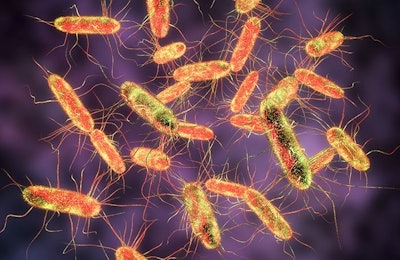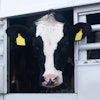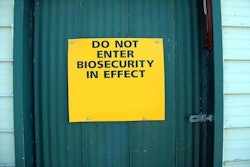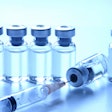
The U.S. Department of Agriculture (USDA) Food Safety and Inspection Service (FSIS) unveiled the three components of its proposed framework to improve Salmonella control in poultry products.
“The framework under consideration has been shaped by months of information-gathering and discussions with a wide range of stakeholders, researchers, and scientists,” according to a statement from the USDA FSIS.
The three components outlined by the proposed framework are:
- Requiring incoming flocks to be tested for Salmonella before entering an establishment. This component would require documentation that poultry flocks meet predetermined targets for Salmonella at receiving.
- Enhancing establishment control monitoring and FSIS verification, including standards for enhanced establishment monitoring procedures.
- Implementing an enforceable final product standard to ensure that products contaminated with Salmonella that is likely to make people sick is not sold to consumers.
The action follows previously announced efforts to reduce Salmonella associated with poultry products, with a focus on “encouraging preharvest controls to reduce Salmonella contamination coming into the slaughterhouse.” The agency also identified Salmonella as an adulterant in breaded chicken in August.
FSIS plans to publish additional guidance for this strategy in 2023, with a goal of finalizing the standards by 2024.
Industry responds
Ashley Peterson, Ph.D., National Chicken Council senior vice president of scientific and regulatory affairs, said she was “disappointed that the agency has failed to use science and research to drive its regulatory policies.”
“We support the need to develop science-based approaches that will impact public health, but this is being done backwards,” she added. “The agency is formulating regulatory policies and drawing conclusions before gathering data, much less analyzing it. This isn’t science - it’s speculation.
Additionally, the National Turkey Federation released the following statement:
“National Turkey Federation members are committed to further enhancing the safety of their products and building on the turkey industry’s ongoing efforts to address Salmonella throughout turkey production. As FSIS and industry look towards comprehensive strategies to advance this priority, it is imperative that the best science drive food safety policy. The Salmonella Framework released today is a starting point and should be the topic of robust debate and discussion among stakeholders. NTF looks forward to continued dialogue with FSIS and working to identify effective, practical solutions to support public health.”
Attend the 2022 Poultry Tech Summit
At the 2022 Poultry Tech Summit on October 30 - November 1 in Atlanta, Georgia, industry experts will address the coming paradigm shift in Salmonella control for poultry products.
Attendees can expect the same groundbreaking innovation and insightful presentations that made the previous events well-attended with deep dialogue on new prospective solutions and next-generation technologies. Poultry Tech Summit focuses on the transition of innovative technologies into commercial applications to advance the poultry industry.


















